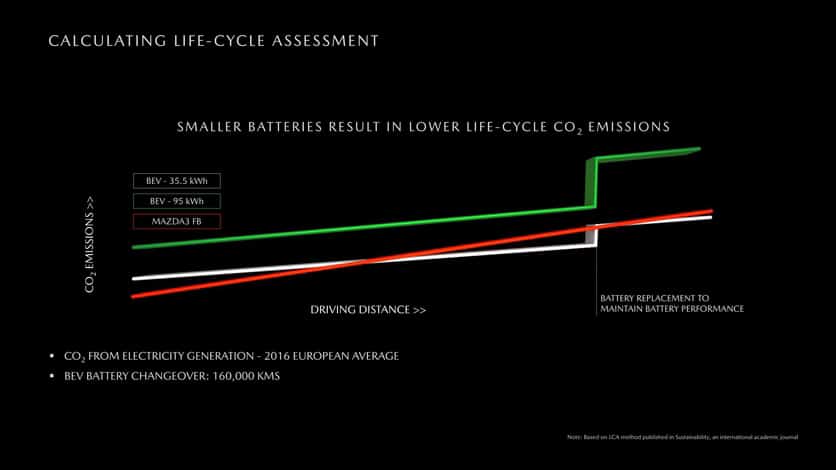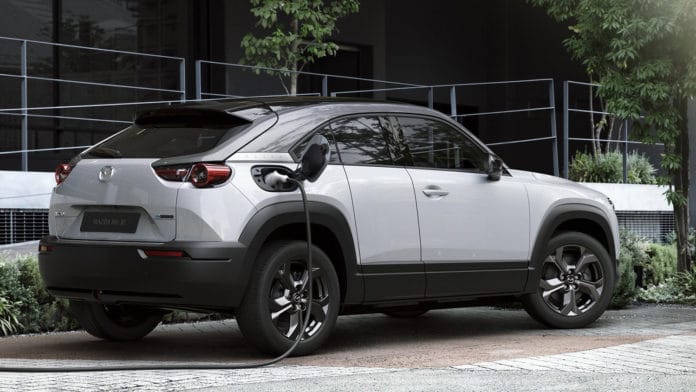While most car manufacturers are investing massively and renewing their range with electric vehicles, Mazda has been slow to enter this market. It was not until the last Auto Show in Tokyo to discover the first 100% electric SUV, Mazda MX-30, from the Japanese manufacturer.
However, the battery capacity of the new car surprised us. With only a capacity of 35.5 kWh, the manufacturer had announced a range of around 200 km, much less than most competing models.
Christian Schultze, director and deputy general manager at Mazda Europe’s r&d center, justifies the manufacturer’s strategy in an interview with Automotive News Europe. He said the brand has chosen to equip the SUV MX-30 with a battery pack of a “responsible” size to avoid the high emissions of electric vehicles. Taking into account total CO2 emissions as well as the production and disposal of batteries, some electric vehicles would be more polluting.
He claims in particular that the environmental impact of the MX-30 would be comparable to that of a Mazda 3 with a diesel engine even by replacing the battery at 160,000 km. According to the company, models equipped with 95 kWh batteries are even more polluting from day one. This situation will only get worse when the owner replaces the batteries after about the same time interval as with the Mazda MX-30.

The graph above, which illustrates the brand’s words, will probably only convince supporters of fossil fuels. The manufacturer, overall, seems to justify its choices at a time when the trend is rather to increase the capacity of the battery packs.
In Europe, electric vehicles for urban use are relatively popular, and the SUV MX-30 could, therefore, appeal to city dwellers. In the United States, where expectations of autonomy are higher, the task is nevertheless much more difficult.
